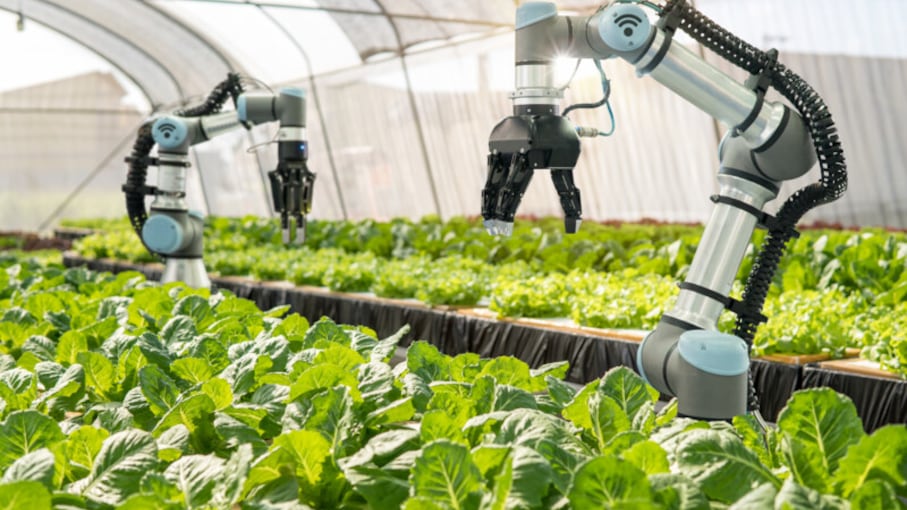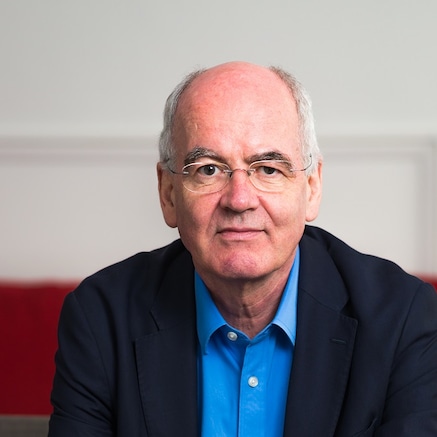Regenerative capitalism for a sustainable future
John Elkington, award-winning sustainability authority, and Founder of Volans, says action in the financial sector is needed to unlock systemic change.

4-minute read
When it comes to sustainability, the circular economy and the linked concept of regeneration, history will probably conclude that 2021 was the year that a systemic change agenda began to break through into world consciousness.
The COP26 climate summit in Glasgow was an inflection point that saw political and commercial mindsets retuned with multiple companies committing to net zero targets. We’re in a classic hype cycle boom period, but the really useful work tends to get done in the downturns that follow.
For over 50 years, the thinking of economists like Milton Friedman has shaped how financial markets—and therefore business realities—have been designed and operated in developed economies. My own triple bottom line concept, introduced 1994, was part of the intensifying push-back—underscoring the importance of wider economic, social and environmental value creation. In 1995 I simplified the manifesto to “People, Planet and Profit”.
So, what did we mean by that? Most efforts to date have focused on how business can be more transparent and accountable and engage with stakeholders. However, now the frame needs to be stretched to embrace resilience in major economic, social, environmental and governance systems. And if such systems are wobbling, the only way to secure their long-term viability and health is to regenerate them, ideally in an integrated way.
Regenerative capitalism requires new business models
As a result, we see growing emphasis not simply to develop the business case for action, but to create new business models that will either continue to create old forms of wealth in new ways or generate new forms of wealth entirely. This is a subject we began to explore in a study for the Business and Sustainable Development Commission. We identified approximately 60 types of business model, such as franchising, freemium, from push-to-pull, multi-sided platforms and Open Source, that can be used to expand the positive impact of business. The study also compared the ways in which insurgents (e.g. Tesla, AirBnb) and groups of incumbents (Nissan, Enel and National Grid) tackled the sustainability challenge. There is always resistance to change, especially from older age groups, who see the changes as challenging, expensive and verging on impossible. However, millennials and the younger people are more optimistic, seeing change as not only possible but also inevitable.
Power of financial capital moves to center stage
One thing that fascinated me about 2021’s COP26 climate summit was how discussion about the fossil fuel sector switched from being a question of whether they needed to change to when and how. Notice was served on the global coal industry, even if there was a last-minute haggle about whether we should talk of “phasing out” or “phasing down” coal. “Down” will become “out” soon enough.
The financial sector is now seen as central to such changes and large sums of capital are starting to move—for example, Mark Carney’s Glasgow Financial Alliance for Net Zero (or GFANZ). According to GFANZ, over $130 trillion of private capital is committed to transforming the economy toward net zero emissions. These commitments, from over 450 firms across 45 countries, could deliver the estimated $100 trillion of finance needed for net zero over the next three decades.
Dedicated to accelerating the pace of decarbonization, GFANZ believes that every company, bank, insurer and investor will need to adjust their business models, develop credible plans for the transition to a low-carbon, climate-resilient future, and then implement those plans. Private finance can help to fund private sector initiatives and turn billions committed to climate investment through public channels into trillions of total climate investment.
Consequently, financial capital is a powerful driver for companies to embrace a sustainability agenda. But, according to GFANZ and others, unlocking systemic change will require collaboration and action across the entire financial system.

Digital technology is key to unlocking sustainability
Sustainability may now be the language of choice for business when thinking of such changes, but circular economy visions and tools sometimes command greater favor with engineers and those designing tomorrow’s supply chains, infrastructures and cities. Still, I believe that the concept of regeneration will come to dominate key areas of the debate through the 2020s. Walmart CEO Doug McMillon’s 2020 Regeneration speech is indicative of the questions many businesses will face and draws on the thinking of Paul Hawken, from his book Regeneration: Ending the Climate Crisis in One Generation.
We need systemic—and often exponential—change, not just incremental change. Happily, most technologies and industries affected in digitalization are now on exponential change trajectories, as evidenced by the work of people like RethinkX.
The digital world is increasingly blurring with the world of sustainability—and both with the increasingly urgent task of planet management. The window of opportunity may be small, but paradoxically, our chances of success are significantly greater when disruption is guaranteed on so many fronts.

About John Elkington
John Elkington has been described as the “godfather of sustainability”. He has co-founded four companies, including Volans, where he is chairman and chief pollinator. He is the author of 20 books—the latest, published by Fast Company Press, being Green Swans: The Coming Boom in Regenerative Capitalism. He has served on some 80 boards and advisory boards, and speaks regularly at business events, business schools and universities. During 2021, he received the World Sustainability Award.